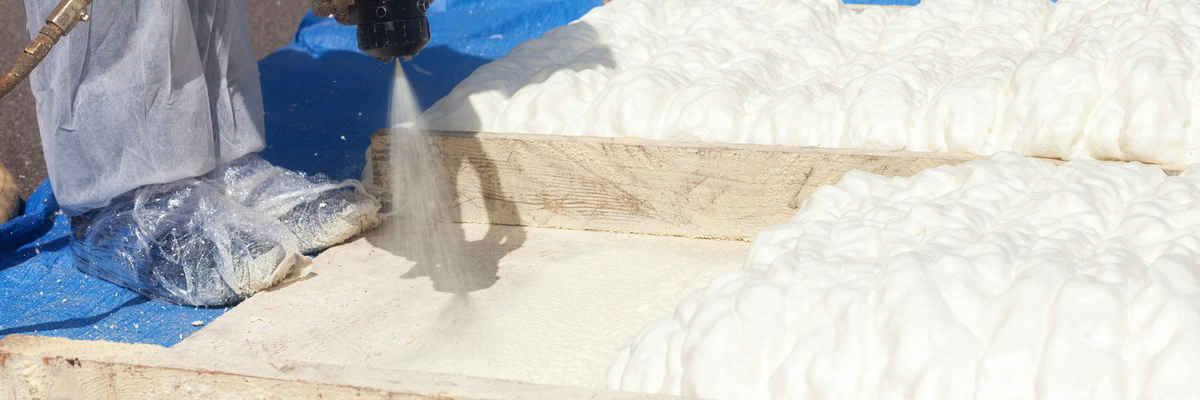What are the benefits of roof insulation?
Insulation reduces heat transfer through thermal radiation, lessening the need for cooling or heating systems. In winter, insulation helps to keep warm air from escaping up the roof and reduces the amount of heat that enters your home from outside. In summer, better insulation means less exterior sun-heat is absorbed by your ceiling before it gets to you. Roof insulation can also improve structural integrity and moisture resistance of a building's walls below the attic space if installed according to code requirements expressed in ASHRAE/IESNA 90.1 energy standard (effective January 1, 2008).
Roof insulation is vital to your roof and the roofing system as a whole. Roof insulation helps prevent roof damage, roof leaks, and roof mold by eliminating roof drafts that cause uncontrolled air pressure differentials. This helps reduce unnecessary roof wear and tear, saving you money in replacement costs later on. With high-quality roof insulation, you prolong the life of your roof. That means more time between roofing repairs or replacements for you--and less money out of your pocket every few years!
On average, 1/3 of your homes heat or cooling escapes through the roof. Installing proper roof insulation makes sure that this energy loss doesn't happen during the summer or winter months, which will cut down your energy bills significantly over time.
Roof insulation helps to stop the roof from "breathing", or letting air escape, which can cause roof damage and roof mold. Good roof insulation will create an effective barrier between your roofing system and the elements. The average cost of roof insulation installation is $80-$120 per 100 square feet (or one bundle using R-13 fiberglass batt insulation). According to Energy Star, proper roof insulation increases your home's energy efficiency by 33% annually, helping you save significant amounts of money on cooling costs in summer months and heating costs during winter months over time. For every degree under 70 degrees Fahrenheit that outside air falls, your furnace needs 1% more fuel to keep you warm throughout winter. By installing roof insulation with an R-value of 33 or greater, you can significantly reduce the amount of heating your furnace needs to maintain a comfortable temperature in cold months.
The roof insulation cost ranges between $0.50 and 0.70 per square foot, depending on roof materials and roof structure size. Many factors affect roof insulation price: local climate (roof insulation is much more common in states like Florida where energy costs are higher year-round), roofing material (price increases when roof deck surface changes) and roof structure size (price increases according to building height). Regardless of these factors, roof insulation is well worth the investment because it will increase the value of your home while reducing your monthly utility bills by up to 50%.
Call Now - (707) 562-0911
Get Your Free Quote!

How does roof insulation work?
The R-value of a material is the thermal resistance it offers to heat, and determines how well insulating materials prevent heat from transferring.
Insulation's effectiveness can be measured with insulation tests such as "resistance factor", "thermal conductivity", and the overall "R-value". When you purchase insulation for your home, there are two different types: loose fill and batt or roll.
If space is limited in your attic, then batt or roll type insulation would be better suited for home insulation because it can fit better in tight spaces than loose fill. Batt type products are classified as air chambers, which basically keep an air space between fiber pieces so that more airspace means higher R-values because it absorbs cold air and keeps the roof insulated. Loose fill insulation is more beneficial in attics that have plenty of space to allow airflow and still keep an adequate level of insulation value.
Loose fill insulation manufacturers often add chemicals to improve fire resistance, prevent mold growth, or extend shelf life, so it is important to check with your supplier if you are looking for chemical-free insulation. Other materials used as roof insulators include mineral wool, fiberglass products such as rockwool, cellulose fibers from recycled paper, plant material such as straw or wood chips, foam boards made out of polystyrene or polyurethane plastic, and slag wool which is a byproduct of metal smelting operations
Another effective roof insulator, spray foam insulation is an expanding polyurethane that fills roof cavities and insulates around roofing vents. This type of roof insulation is the best alternative, if the roof space isn't very accessible or you need to seal roof penetrations. Spray foam roof insulation forms an airtight barrier which helps protect against roof leaks and prevents condensation build-up.
The next step for figuring out how roof insulation works is to take measurements before purchasing any product so you know exactly what your roof needs in terms of R-value.
Call Us Now - (707) 562-0911
